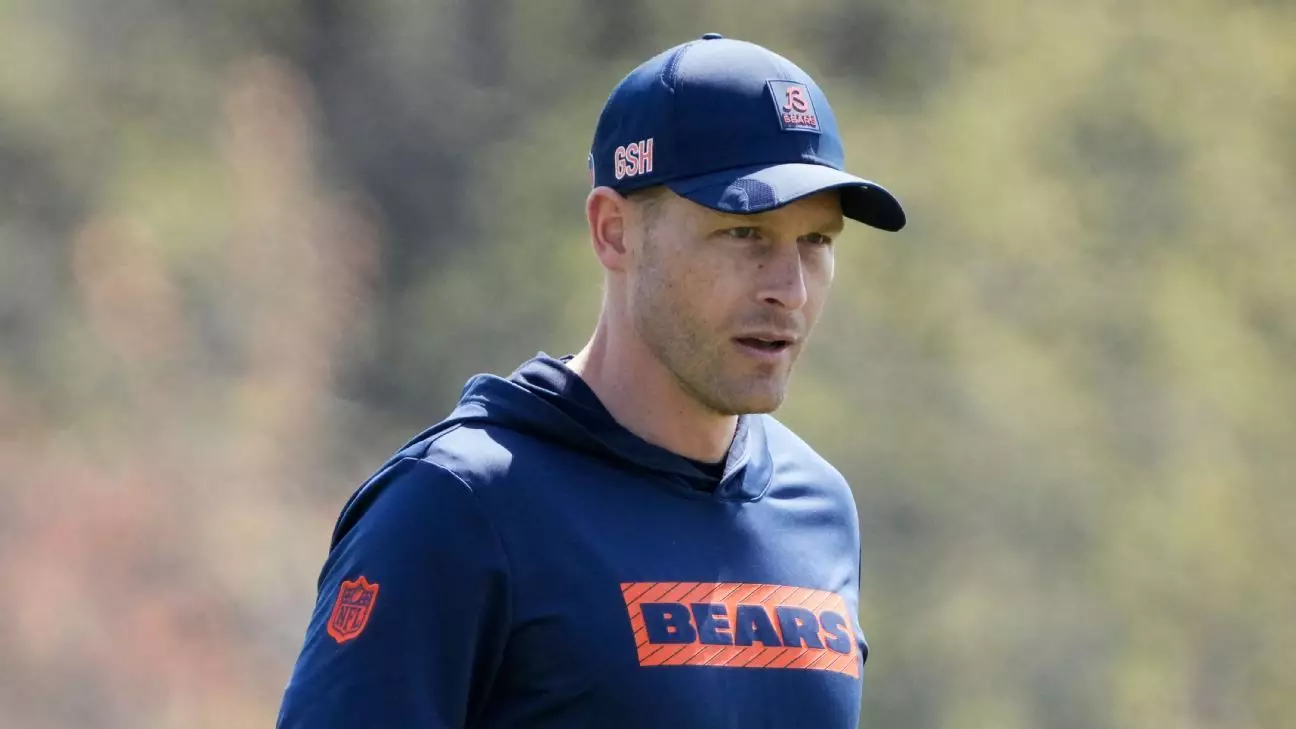The Chicago Bears, a franchise steeped in rich history, has faced an uphill battle when it comes to quarterback development. The arrival of head coach Ben Johnson signals not just a change in leadership but a renewed opportunity to transform a franchise beleaguered by its past. Caleb Williams, the highly touted No. 1 pick, embodies both potential and reservations about the organization he now represents. Recent insights from ESPN’s Seth Wickersham’s book “American Kings: A Biography of the Quarterback” shed light on the trepidation surrounding Williams and the lasting sentiment from his father, Carl Williams, who famously stated that the Bears are a graveyard for quarterbacks. It’s a daunting legacy that Johnson fervently aims to alter.
Understanding the Burden of Expectations
When examined closely, the skepticism surrounding Caleb Williams is not unwarranted. For decades, the Bears have suffered from a series of erratic performances and questionable managerial decisions regarding their signal callers. Williams’ desire to join the Minnesota Vikings instead of the Bears reveals a broader narrative about the franchise’s approach to quarterback management, highlighting a critical lack of confidence that has seeped into the minds of aspiring stars. Johnson’s readiness to confront these vulnerabilities is an encouraging sign that perhaps, this time, things will be different.
Upon taking the reins, Johnson expressed his determination to rewrite the franchise’s narrative. His optimism is commendable and indicates a shift towards fostering a more supportive and structured environment for young quarterbacks like Williams. Johnson’s comment, “That’s where great stories are written,” encapsulates a vital shift in mindset — from one of despair and skepticism to one of potential and opportunity.
Building a Partnership: Johnson and Williams Unite
Evidence suggests that the relationship between coach and player is pivotal to a quarterback’s development. Recent discussions between Johnson and Williams point towards a blossoming partnership based on trust and mutual respect. Johnson’s seasoned experience as the offensive coordinator for the Detroit Lions equips him with a keen understanding of how to develop young talent. However, the question lingers: can he indeed change Williams’ trajectory in a way that his predecessors failed to do?
Johnson’s acknowledgment of the past — particularly the reported disconnect between Williams and the former offensive coordinator — illustrates a keen self-awareness that is critical for any leader. The disclosure that Williams often endured a solitary experience while reviewing game footage highlights a systemic failure in the former coaching regime. Johnson’s willingness to engage Williams directly and create an accountable environment signifies a meaningful shift from the previous model.
Fostering Accountability and Growth
The essence of Johnson’s approach lies in accountability — not just expecting it from his players but embodying it as a coach. Williams’ public appeals for tougher coaching demonstrate both his ambition and an intrinsic understanding that greatness requires more than just talent. Johnson’s commitment to holding himself and Williams accountable could serve as the bedrock for a revitalized culture within the Bears’ organization.
As Johnson continues to emphasize the importance of building rapport, it is imperative that he doesn’t just aim for short-term success but instead lays a foundation for enduring excellence. The previous season’s turmoil should not define Williams’ career in Chicago but rather provide insights into how to navigate adversity.
The Future on the Horizon
With Johnson at the helm and Williams in the fold, the Bears are poised at a critical juncture. The future brims with possibilities — if the franchise can dig deep and change the narrative, they could transform from a history of disappointment into a beacon of hope for both current and future players. Johnson’s enthusiasm is infectious: “The more time we spend together… he understands I have his best interests at heart.” Such sentiments are encouraging and suggest that, with the right direction, the Bears can forge a new legacy of quarterbacking excellence.
As the upcoming seasons unfold, fans, players, and stakeholders alike will be watching closely to see if Johnson and Williams can collaboratively carve out a path towards a rejuvenated franchise identity. In a city where the echoes of past failures resonate deeply, the dawn of a new era could very well be within reach — if the right steps are taken.

